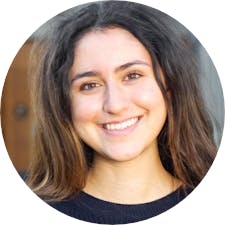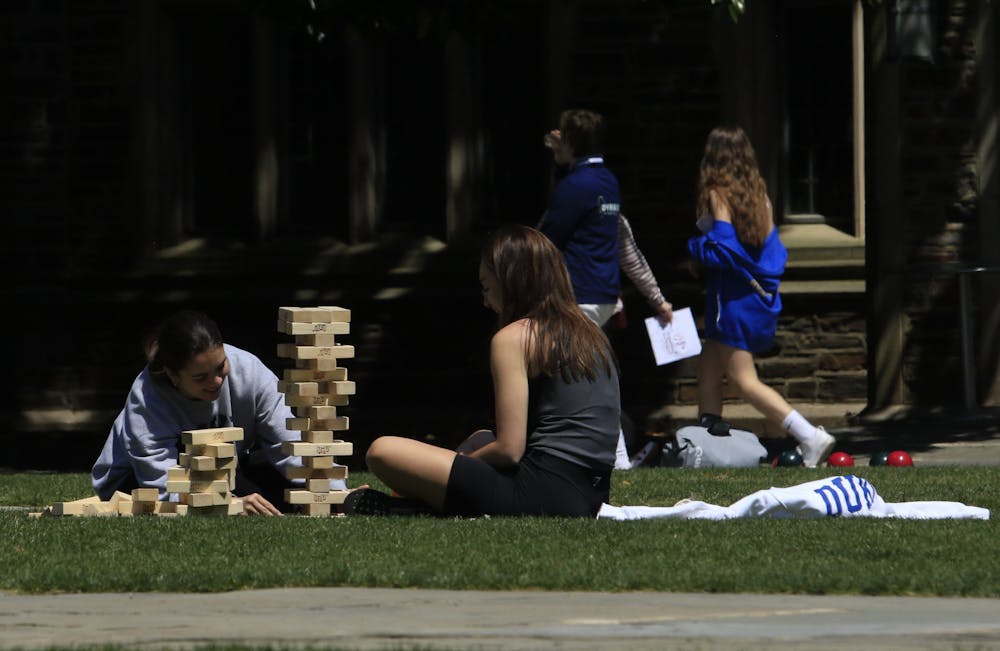Gen Z, which encompasses nearly 69 million Americans, has been described as a generation of “digital natives.” They came of age on social media, navigating Instagram and Tumblr alongside middle school drama and finding communities as much online as in real life. With the infinite expanse of the internet at their fingertips, they’re the most connected generation yet.
But data reveals that they may actually be the loneliest.
This contradiction weighed heavily upon junior Sonali Sanjay following her first semester of college in 2020. During her winter break, which she spent at her home in Richmond, VA, she reflected on her Duke experience up to that point. Despite seeking connection with her peers, she’d found it “really suffocating.”
“I just realized that I was just stuck in my dorm without a roommate, without in-person classes, taking Zoom lectures from my double dorm room with no one else there,” Sanjay said. “And I thought, wow, everyone else on campus must be feeling the exact same thing.”
Sanjay’s intuition was spot-on — members of Gen Z are reporting unprecedented rates of anxiety, depression and stress. Sanjay realized that these issues persisted beyond the pandemic and began to dive into research. She found that while many of her peers were hesitant to express their sense of isolation out loud, anonymous apps like YikYak and Reddit revealed hundreds of others who could relate.
Enter Sanjay’s brand-new app, Mil, which launched on the app store Monday after over a year of research, testing and development. Sanjay believes it could be the future of sparking connections on campus: first at Duke, and potentially at other colleges across the country.
The student-entrepreneur hopes that Mil — the Hindi word for “meet” — will encourage “hyper-casual and spontaneous” meetups with other members of the Duke community. According to Sanjay, it will do so in a way that doesn't make students feel self-conscious or judged.
First, users sign up and verify their college enrollment through their student emails. They are then given an anonymous, randomly generated username. From there, they can make posts and respond to others’ events.
For instance, a user looking for a gym buddy could post, “Anyone want to head to Wilson at 5 p.m. today?” Interested people would register for the event. The original poster would be able to see respondents' profiles, which include information like their name, class and interests, before approving or declining the invitation to meet. If the original poster accepts the request, the two are given each other’s profiles to ensure double-sided security. Then, the meetup can take place.
Sanjay emphasized that this method is not meant to promote exclusivity; rather, it is a safety protocol.
“We need the host to be able to see their attendees, we need the host to have control over who can come because if we don't, we're not protecting the user,” she said.
Sanjay recalled a success story that took place during Mil’s testing period. After launching a preemptive version of the app on Slack, she had been delighted to learn that two users had met up for spikeball on the quad and were making plans to see each other again.
“I remember seeing that message, and I don't know why … I just sobbed, like tears of joy,” she said, eyes shining. “I was like, 'Oh my god, it could work.'"
Sanjay spent last summer pouring hours into the startup, forgoing a traditional internship to work closely with a professional app developer based in Pakistan.
While Sanjay has funded the app development process herself — “every cent that I put towards this app was money that I earned last summer doing an internship,” she said — its creation wasn’t a completely solo effort. The Cube, an entrepreneurship-focused selective living group, provided advice, support and inspiration along the way.
Senior Jane Zhang is a fellow Cube member who saw Mil in its earliest stages. She had been impressed by Sanjay’s pitch at the selective living group’s Demo Day last spring, where her startup was awarded $500.
“[Sanjay] had done a lot of previous research to prove that there is a desire for people to congregate and share activities at Duke. I also think she did a really great job telling the journey from … this is what an entering student looks like, here are the different anxieties and problems they have, and here's how my app is going to help solve that,” she said.
Sanjay emphasizes that Mil is different from other meetup platforms such as Bumble, Nextdoor and YikYak, because “it’s not people-centered.” Rather, the app shifts the focus towards people’s common interests.
“We're taking the surface level judgment, we're taking superficiality, we're taking all of that out of the equation. And we're just centering friendships around events and shared interests,” she said.
For Sanjay, success means getting people involved and connected.
“[Loneliness] is a very intimate issue that I think a lot of us go through. And I think making campus feel a little less lonely is kind of the ultimate goal of this project,” she said.
Get The Chronicle straight to your inbox
Signup for our weekly newsletter. Cancel at any time.

Sevana Wenn is a Trinity sophomore and features managing editor of The Chronicle's 118th volume.

